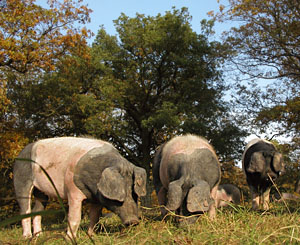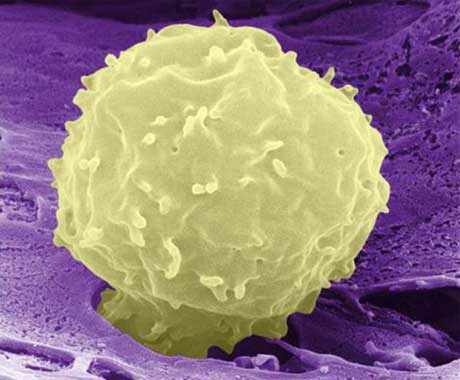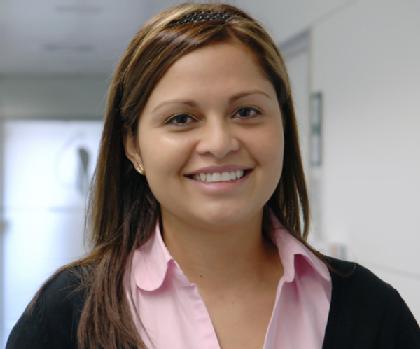– Curcumin Beats Chemo for Reducing Colon Cancer Stem Cells
* * *
Please support I. U.
PayPal: Donate in USD
PayPal: Donate in EUR
PayPal: Donate in GBP
The man who trades freedom for security does not deserve nor will he ever receive either. – Benjamin Franklin
– New Stem Cell Treatment Reverses Vision Loss in 2 Patients:
Two people who were going blind can now see the world in much greater detail than before thanks to an experimental stem cell treatment for age-related macular degeneration, according to a new study.
One patient in the study, Douglas Waters, had severe macular degeneration and couldn’t see out of his right eye. But after the treatment, “I can now read the newspaper,” the 86-year-old told the BBC.
Age-related macular degeneration is a common cause of vision loss in people ages 50 and older. The condition causes damage to a part of the eye called the macula, which is responsible for central vision or the ability to see things straight in front of us, according to the National Eye Institute. People use central vision for daily tasks such as driving and reading.
Read moreNew Stem Cell Treatment Reverses Vision Loss in 2 Patients

You probably know at least one person who raves about the health benefits of turmeric. This deep, orange root has been used as a panacea for everything from soothing joint pain and calming inflammation, to lowering the risk of heart disease. And our awareness of the benefits of this ancient medicinal herb continues to grow.
Turmeric is an example of a remyelinating compound, which denotes a substance with proven nerve-regenerative effects.
Remyelinating compounds work to repair the protective sheath around the nerve bundle known as myelin, an area often damaged in autoimmune and vaccine-induced disorders. Research shows that even small doses of these restorative substances can produce significant nerve regeneration.
The Western model of pharmaceutical intervention has created a culture that seeks to identify and isolate the “active ingredient” of an organic substance. What this fails to account for is that organic compounds often work in concert: isolates by themselves may lack a critical key that another plant element provides.
Curcumin is the isolated active ingredient in turmeric, however, new research shows that another element found in turmeric has magical properties of its own.
In an exciting study published in the journal Stem Cell Research & Therapy, researchers found that a little-known component within turmeric, Ar-tumerone, may make “a promising candidate to support regeneration in neurologic disease.”
The study found that when brain cells were exposed to ar-tumerone, neural stem cells increased in number and complexity, indicating a healing effect was taking place. This effect was replicated in rats, who when exposed to ar-tumerone saw increased neural stem cell production and the generation of healthy new brain cells.
Source (Green tea is a fluoride bomb, even if it is 100% organic.)
* * *
PayPal: Donate in USD
PayPal: Donate in EUR
PayPal: Donate in GBP
Burns victims are making incredible recoveries thanks to a revolutionary ‘gun’ that sprays stem cells on to their wounds, enabling them to rapidly grow new skin.
People who suffer extensive burns usually have to endure weeks or even months of treatment, with surgeons taking large sheets of skin from elsewhere on the body and grafting them.
The process is painful, and patients are often left with permanent, unsightly scars.
“The cell is immortal. It is merely the fluid in which it floats that degenerates. Renew this fluid at regular intervals, give the cell what it requires for nutrition, and as far as we know, the pulsation of life can go on forever.”
– Dr. Alexis Carroll, Nobel Prize Winner
Related info:
– Li Ching-Yun lived 197 years (Inquiry Put Age At 256) – The New York Times May 6, 1933
– Secret to long life found in 115-year-old woman’s blood (Natural News, May 12, 2014):
In 2005, 115-year-old Hendrikje van Andel-Schipper passed away to old age healthy and disease-free. At the time of her death, Schipper became the oldest person to have her body donated to science. Longevity researchers were interested in understanding why a healthy person suddenly dies of old age. A group of Dutch researchers may be onto something. After researching the woman’s stem cells, Dutch researchers, led by Henne Holstege, may have found out why this woman lived disease-free for well over a century and why her body shut down when it did.
Long life may be limited by stem cell’s ability to divide
In their research at the VU University Medical Center in Amsterdam, Hostege and her team went to work sequencing Schipper’s genome, looking for specific gene mutations as they searched for a possible secret to long life. The study, published in the journal Genome Research, reported that cell division cannot last forever and a person’s lifespan may be limited by the stem cell’s ability to divide efficiently.
Read moreSecret To Long Life Found In 115-Year-Old Woman’s Blood
The elitists did a great job keeping this knowledge from you.
Recommended book @Amazon.com:
– “Your Own Perfect Medicine” by Martha Christy (Citing lots of scientific studies!)
Related info:
– 24 Doctors With The Courage To Tell The Truth About Distilled Water
– 6,000-Year-Old Ancient Egyptian ‘WATER OF LIFE’ Papyrus
Also: John 7:38: “Rivers of living water shall flow from your bellies.”
– Researchers identify stem cells in urine can be directed to become multiple cell types (News Medical, July 31, 2013):
Could harvesting stem cells for therapy one day be as simple as asking patients for a urine sample? Researchers at Wake Forest Baptist Medical Center’s Institute for Regenerative Medicine and colleagues have identified stem cells in urine that can be directed to become multiple cell types.
“These cells can be obtained through a simple, non-invasive low-cost approach that avoids surgical procedures,” said Yuanyuan Zhang, M.D., Ph.D., assistant professor of regenerative medicine and senior researcher on the project.
Read moreResearchers Identify Stem Cells In Urine Can Be Directed To Become Multiple Cell Types
The elitists did a great job keeping this knowledge from you.
Recommended book @Amazon.com:
– “Your Own Perfect Medicine” by Martha Christy (Citing lots of scientific studies!)
Related info:
– 24 Doctors With The Courage To Tell The Truth About Distilled Water
– 6,000-Year-Old Ancient Egyptian ‘WATER OF LIFE’ Papyrus
Also: John 7:38: “Rivers of living water shall flow from your bellies.”
– Stem cells in urine easy to isolate and have potential for numerous therapies (Science Daily, July 31, 2013):
Could harvesting stem cells for therapy one day be as simple as asking patients for a urine sample? Researchers at Wake Forest Baptist Medical Center’s Institute for Regenerative Medicine and colleagues have identified stem cells in urine that can be directed to become multiple cell types.
“These cells can be obtained through a simple, non-invasive low-cost approach that avoids surgical procedures,” said Yuanyuan Zhang, M.D., Ph.D., assistant professor of regenerative medicine and senior researcher on the project.
Read moreStem Cells In Urine Easy To Isolate And Have Potential For Numerous Therapies
The elitists did a great job keeping this knowledge from you.
Recommended book @Amazon.com:
– “Your Own Perfect Medicine” by Martha Christy (Citing lots of scientific studies!)
Related info:
– 24 Doctors With The Courage To Tell The Truth About Distilled Water
– 6,000-Year-Old Ancient Egyptian ‘WATER OF LIFE’ Papyrus
Also: John 7:38: “Rivers of living water shall flow from your bellies.”

Getting neurons from cells discarded in urine, may one day help develop therapies for neurodegenerative diseases like Parkinson’s disease.
– Brain cells made from urine (Nature, Dec 12, 2014):
Human excreta could be a powerful source of cells to study disease, bypassing some of the problems of using stem cells.
Some of the waste that humans flush away every day could become a powerful source of brain cells to study disease, and may even one day be used in therapies for neurodegenerative diseases. Scientists have found a relatively straightforward way to persuade the cells discarded in human urine to turn into valuable neurons.
The technique, described online in a study in Nature Methods this week1, does not involve embryonic stem cells. These come with serious drawbacks when transplanted, such as the risk of developing tumours. Instead, the method uses ordinary cells present in urine, and transforms them into neural progenitor cells — the precursors of brain cells. These precursor cells could help researchers to produce cells tailored to individuals more quickly and from more patients than current methods.
The elitists did a great job keeping this knowledge from you.
Recommended book @Amazon.com:
– “Your Own Perfect Medicine” by Martha Christy (Citing lots of scientific studies!)
Related info:
– 24 Doctors With The Courage To Tell The Truth About Distilled Water
– 6,000-Year-Old Ancient Egyptian ‘WATER OF LIFE’ Papyrus
Also: John 7:38: “Rivers of living water shall flow from your bellies.”
– Stem cell scientists grow human teeth from urine (Natural News, Aug 7, 2013):
Could you imagine going to the dentist’s office and handing them a urine sample so they could grow you a new tooth? Within weeks, stem cells from your urine could be birthing a tooth right in your own mouth.
This is exactly what Chinese researchers are onto. Using cells generated from urine, researchers have found a way to isolate important stem cell subsets, implant them into a jawline, and generate structures similar to human teeth. Stem cells from urine are on the verge of become the new building blocks for tooth implants, as orthodontists may one day be able ‘seed’ new tooth growths in the jaws of patients who need a transplant.
– Scientists ‘grow’ a brain in a laboratory for the first time (Independent, Aug 28, 2013):
Organ created from skin cells is equivalent in development to that of a human foetus at nine weeks
Scientists have grown miniature human brains from skin cells in a laboratory for the first time as part of a study into the development of the most complex of all our organs, and the ultimate source of human creativity and consciousness.
The mini-brains are less than 4mm across but researchers say that they are equivalent in development to the brain of a human foetus at about nine weeks’ gestation, and even have the complex three-dimensional structure of a real embryonic brain.
Read moreScientists ‘Grow’ A Brain In A Laboratory For The First Time
Description:
06/21/2012
Researchers in Japan say they have grown a tiny human liver from pluripotent stem cells. If the findings prove accurate, it would be the first time anyone has managed to grow a functional human organ from stem cells produced from human skin.
– Scientists grow sperm in laboratory dish (Telegraph, Jan. 2, 2012):
The development opens up the possibility of infertile men being able to father their own children rather than using donor sperm.
Researchers in Germany and Israel were able to grow mouse sperm from a few cells in a laboratory dish.
In a world first a team headed by Professor Stefan Schlatt, at Muenster University in Germany, were able to grow sperm by using germ cells. These are the cells in testicles that are responsible for sperm production.
See also:
– Dr. Bruce Lipton Ph.D. – Changing Our Cells by Thought (Video)
Must-see:
– Bruce Lipton – The New Biology – Where Mind and Matter Meet (Video)
YouTube Added: 12.09.2011
Bruce H Lipton, PhD is an internationally recognized leader in bridging science and spirit. He has been a guest speaker on dozens of TV and radio shows, as well as keynote presenter for national conferences.
– 150 human animal hybrids grown in UK labs: Embryos have been produced secretively for the past three years (Daily Mail, July 23, 2011):
Scientists have created more than 150 human-animal hybrid embryos in British laboratories.
The hybrids have been produced secretively over the past three years by researchers looking into possible cures for a wide range of diseases.
The revelation comes just a day after a committee of scientists warned of a nightmare ‘Planet of the Apes’ scenario in which work on human-animal creations goes too far.
Last night a campaigner against the excesses of medical research said he was disgusted that scientists were ‘dabbling in the grotesque’.
Figures seen by the Daily Mail show that 155 ‘admixed’ embryos, containing both human and animal genetic material, have been created since the introduction of the 2008 Human Fertilisation Embryology Act.
This legalised the creation of a variety of hybrids, including an animal egg fertilised by a human sperm; ‘cybrids’, in which a human nucleus is implanted into an animal cell; and ‘chimeras’, in which human cells are mixed with animal embryos.
Scientists say the techniques can be used to develop embryonic stem cells which can be used to treat a range of incurable illnesses.
Read more150 HUMAN ANIMAL HYBRIDS Secretly Produced In UK Labs
– Science with real bite: Full set of teeth grown in the lab (Daily Mail, July 13 2011):
Scientists have grown fully formed teeth from stem cells.
The artificial teeth looked like the real thing, were sensitive to pain and could chew food.
The breakthrough was made on mice but could pave the way for those who lose teeth to decay or injury being able to ‘grow’ replacements.
The researchers harnessed the power of stem cells – ‘master cells’ which have the potential to be used to grow any part of the body – to generate teeth.
Read moreBreakthrough: Scientists Grow Full Set Of Teeth From Stem Cells
See also: UK Academics Quit Rigged FSA Frankenfood Propaganda

‘Children & Pets net NOT to be excluded from treated area.’
Used in yards, farms and parks throughout the world, Roundup has long been a top-selling weed killer. But now researchers have found that one of Roundup’s inert ingredients can kill human cells, particularly embryonic, placental and umbilical cord cells. The new findings intensify a debate about so-called “inerts” – the solvents, preservatives, surfactants and other substances that manufacturers add to pesticides. Nearly 4,000 inert ingredients are approved for use by the U.S. Environmental Protection Agency.
Used in yards, farms and parks throughout the world, Roundup has long been a top-selling weed killer. But now researchers have found that one of Roundup’s inert ingredients can kill human cells, particularly embryonic, placental and umbilical cord cells.
The new findings intensify a debate about so-called “inerts” – the solvents, preservatives, surfactants and other substances that manufacturers add to pesticides. Nearly 4,000 inert ingredients are approved for use by the U.S. Environmental Protection Agency.
Glyphosate, Roundup’s active ingredient, is the most widely used herbicide in the United States. About 100 million pounds are applied to U.S. farms and lawns every year, according to the EPA.
Until now, most health studies have focused on the safety of glyphosate, rather than the mixture of ingredients found in Roundup. But in the new study, scientists found that Roundup’s inert ingredients amplified the toxic effect on human cells-even at concentrations much more diluted than those used on farms and lawns.
One specific inert ingredient, polyethoxylated tallowamine, or POEA, was more deadly to human embryonic, placental and umbilical cord cells than the herbicide itself – a finding the researchers call “astonishing.”
“This clearly confirms that the [inert ingredients] in Roundup formulations are not inert,” wrote the study authors from France’s University of Caen. “Moreover, the proprietary mixtures available on the market could cause cell damage and even death [at the] residual levels” found on Roundup-treated crops, such as soybeans, alfalfa and corn, or lawns and gardens.
The research team suspects that Roundup might cause pregnancy problems by interfering with hormone production, possibly leading to abnormal fetal development, low birth weights or miscarriages.
Read moreStudy: Monsanto’s Roundup Kills Human Cells (Flashback)

Pigs raised under oak and beech trees produce the best ham.
But maybe you want to try the lab ‘Petri dish pork’ instead???
LONDON — Call it pork in a Petri dish — a technique to turn pig stem cells into strips of meat that scientists say could one day offer a green alternative to raising livestock, help alleviate world hunger, and save some pigs their bacon.
Dutch scientists have been growing pork in the laboratory since 2006, and while they admit they haven’t gotten the texture quite right or even tasted the engineered meat, they say the technology promises to have widespread implications for our food supply.
“If we took the stem cells from one pig and multiplied it by a factor of a million, we would need one million fewer pigs to get the same amount of meat,” said Mark Post, a biologist at Maastricht University involved in the In-vitro Meat Consortium, a network of publicly funded Dutch research institutions that is carrying out the experiments.
Post describes the texture of the meat as sort of like scallop, firm but a little squishy and moist. That’s because the lab meat has less protein content than conventional meat.
Several other groups in the U.S., Scandinavia and Japan are also researching ways to make meat in the laboratory, but the Dutch project is the most advanced, said Jason Matheny, who has studied alternatives to conventional meat at the Johns Hopkins Bloomberg School of Public Health in Baltimore and is not involved in the Dutch research.

Abdel Halim Tolba, a snake hunter, holds a mouse which is used to feed snakes at the Tolba snake farm in Cairo, Egypt. (REUTERS)
HONG KONG (Reuters) – Chinese researchers have managed to create powerful stem cells from mouse skin and used these to generate fertile live mouse pups.
They used induced pluripotent skin cells, or iPS cells — cells that have been reprogrammed to look and act like embryonic stem cells. Embryonic stem cells, taken from days-old embryos, have the power to morph into any cell type and, in mice, can be implanted into a mother’s womb to create living mouse pups.
Their experiment, published in Nature, means that it is theoretically possible to clone someone using ordinary connective tissue cells found on the person’s skin, but the experts were quick to distance themselves from such controversy.
“We are confident that tremendous good can come from demonstrating the versatility of reprogrammed cells in mice, and this research will be used to … understand the root causes of disease and lead to viable treatments and cures of human afflictions,” said Fanyi Zeng of the Shanghai Institute of Medical Genetics at Shanghai Jiao Tong University.
“It would not be ethical to attempt to use iPS cells in human reproduction. It is important for science to have ethical boundaries,” she said, adding that their study was “in no way meant as a first step in that direction.”

The preliminary findings add to the growing evidence that stem cells could be used to treat multiple sclerosis Photo: AP
Some have been left free from seizures and better able to walk after the treatment.
Researchers said that the results suggest that the “very simple” injection of their own cells can stimulate the regrowth of tissue damaged by the progression of the disease.
The preliminary findings add to the growing evidence that stem cells could be used to treat the crippling neurological disease, which affects about 85,000 people in Britain.
Last year experts suggested that stem cell therapy could be a “cure” for MS within the next 15 years.
Patients’ symptoms were still improving up to a year after the treatment, the new study shows.
One, a 50-year-old man, who had suffered more than 600 painful seizures in the three years before treatment has not had a single one since the infusion of his own cells.
Another patient’s ability to walk, run and even cycle are still improving 10 months after the therapy.
Jan. 30 (Bloomberg) — A dose of their own stem cells “reset” the malfunctioning immune system of patients with early-stage multiple sclerosis and, for the first time, reversed their disability, according to researchers at Northwestern University in Chicago.
All 21 patients in the study had the “relapsing-remitting” form of the disease that makes their symptoms alternately flare up and recede. Three years after being treated, on average, 17 of the patients had improved on tests of their symptoms, 16 had experienced no relapse and none had deteriorated, the study found.
“This is the first study to actually show reversal of disability,” said Richard Burt, an associate professor in the division of immunotherapy at Northwestern, and the lead author of the study published yesterday in the British journal, the Lancet Neurology. “Some people had complete disappearance of all symptoms.”
Researchers are using stem cells taken from people’s own bodies to try to fight conditions such as heart disease, orthopedic ailments and to reconstruct women’s breasts after cancer surgery. These adult stem cells differ from those derived from embryos, which have the potential to form any of the roughly 210 cell types in the human body. Geron Corp. last week was given U.S. regulatory approval to conduct the first human studies with embryonic stem cells.
Read moreDose of Own Stem Cells Reverses Patients’ Multiple Sclerosis

A stem cell emerging from rat bone marrow. By stimulating the release of stem cells after a heart attack, the healing process could be accelerated. Photograph: Imperial College London
A groundbreaking medical treatment that could dramatically enhance the body’s ability to repair itself has been developed by a team of British researchers.
The therapy, which makes the body release a flood of stem cells into the bloodstream, is designed to heal serious tissue damage caused by heart attacks and even repair broken bones. It is expected to enter animal trials later this year and if successful will mark a major step towards the ultimate goal of using patients’ own stem cells to regenerate damaged and diseased organs.
‘This would allow bodies to heal themselves’ Link to this audio
When the body is injured, bone marrow releases stem cells that home in on the damaged area. When they arrive, they start to grow into new tissues, such as heart cells, blood vessels, bone and cartilage.
Scientists already know how to make bone marrow release a type of stem cell that can only make fresh blood cells. The technique is used to collect cells from bone marrow donors to treat people with the blood cancer leukaemia.
Read moreRevolutionary stem cell therapy boosts body’s ability to heal itself
A stroke victim has regained the power of speech after doctors placed a device resembling a teabag filled with stem cells in his brain.

Genetically modified stem cells fitted into a kind of ‘tea bag’ are implanted to the patient’s brain where they are supposed to have an anti-inflammatory effect Photo: EPA
Walter Bast, 49, also regained the use of his right arm after the revolutionary treatment, which prevents brain cells from dying.
If further trials of the treatment are successful, it could be on the market in as little as five years, providing fresh hope for the 45,000 Britons each year who suffer a haemorrhagic stroke, where a blood vessel in the brain bursts.
Currently, the only option is surgery, which has a variable success rate. Half of surgery patients will die within a month and just one in 20 patients will recover to the extent of Mr Bast.
The pioneering treatment, called CellBeads, involves cutting away part of the skull to tie off leaking blood vessels and remove blood from the brain.
Surgeons then insert the 2cm by 2cm ‘teabag’ filled with capsules stuffed with around a million stem cells.
The stem cells, taken from bone marrow, have been genetically engineered to make a drug known as CM1 that protects brain cells from dying. This lets the cells rejuvenate and repair the damage done by the stroke.
After around two weeks, doctors at the International Neuroscience-Institute in Hanover, Germany, removed the ‘teabag’, resulting in Mr Bast regaining his speech and the use of his right arm.
Speaking a week after the operation, the first of its kind in the world, Mr Bast, a mechanic, said: “I feel a lucky guy.”
Read moreMiracle teabag – containing stem cells – helps stroke victim to speak again

Claudia Castillo, the patient in the ground-breaking operation. Photo: AP
PARIS — Physicians at four European universities have completed what they say is the first successful transplant of a human windpipe using a patient’s own stem cells to fashion an organ and prevent its rejection by her immune system, according to an article in the British medical journal The Lancet. One of the physicians said the surgery could herald a “new age in surgical care.”
The transplant operation was performed on the patient, Claudia Castillo, in June in Barcelona, Spain, to alleviate an acute shortage of breath caused by a failing airway following severe tuberculosis. It followed weeks of preparation carried out at the universities of Barcelona, Spain, Bristol, England and Padua and Milan in Italy.